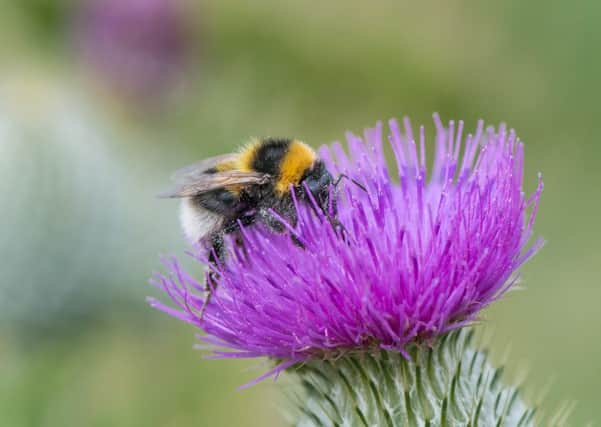Bumblebees hit by Beast from the East and heatwave


BeeWalk surveys, carried out by volunteers across the UK, show 13 of the country’s 24 species declined in 2018.
These include some of the country’s best known breeds, including buff-tailed and white-tailed bumblebees.
Advertisement
Hide AdAdvertisement
Hide AdOther species which are usually common in gardens also fared badly in 2018, including garden and heath bumblebees. The early bumblebee, a spring specialist, had a particularly bad year – its worst since rain-soaked 2012.
The report from the Bumblebee Conservation Trust (BCT), showed most species got off to a shaky start and only reached normal numbers in July.
Experts say this suggests queens were late out of hibernation and slower to produce big numbers of workers.
As a result many species declined more quickly than usual as the year progressed, particularly as flowers wilting in the summer heatwave reduced food supplies.
However, despite the extreme weather conditions, some rare species saw increases in 2018 – including the brown-banded carder, shrill carder and large garden bees. All three are traditionally late-emerging species, so were unlikely to have been significantly affected by freezing March temperatures.
There was insufficient data to assess the fortunes of the country’s rarest bumblebee, the great yellow, which is found only in a few isolated places in the north of Scotland.
Dr Richard Comont, science manager for the BCT, said: “Whilst it is great to see the four biggest species winners from our latest BeeWalk data are rare bumblebees, it’s concerning to see four of our seven commonest bumblebees have declined over the last nine years.”
Experts have raised concerns that last year’s extreme weather could have reduced the number of queens that made it into hibernation over winter, which could affect current populations.
Additionally, they say the likelihood of increasingly frequent heatwaves could spell trouble for UK bumblebees in the longer term.